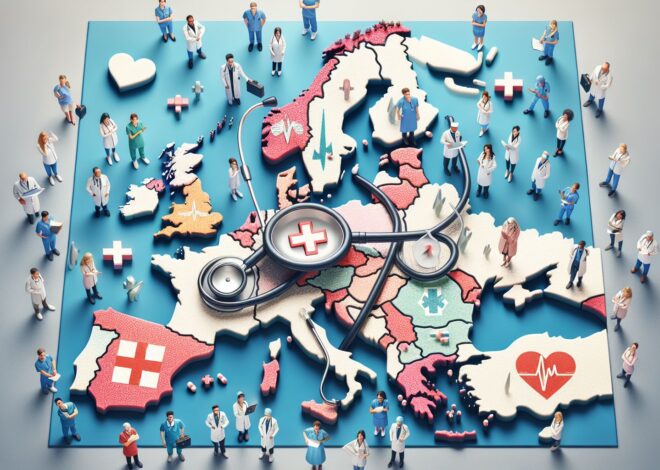
Ensuring Preparedness and Response in European Health Systems
The outbreak of the coronavirus pandemic has put immense pressure on health systems worldwide, including those in Europe. The unprecedented challenge has highlighted the importance of preparedness and response in ensuring the well-being of our communities. In this article, we will discuss the critical role of European health systems in addressing such emergencies and offer insights for health professionals, policymakers, and concerned citizens on how to navigate these turbulent times.
Preparedness
Preparedness is the cornerstone of a resilient health system. It involves having robust structures in place to detect, assess, and respond to health threats promptly. European health systems have made significant strides in strengthening their preparedness capabilities over the years. Initiatives such as the European Center for Disease Prevention and Control (ECDC) and the World Health Organization’s Regional Office for Europe have played a vital role in coordinating responses and supporting countries in their preparedness efforts.
Health professionals are at the forefront of preparedness, as they are often the first line of defense in detecting and containing outbreaks. Continuous training and capacity-building programs are essential to ensure that they have the necessary skills and knowledge to respond effectively to emergencies. Policymakers play a crucial role in ensuring that health systems are adequately resourced and equipped to handle crises. Investing in health infrastructure, stockpiling medical supplies, and strengthening surveillance systems are key components of preparedness.
Response
The response to a health emergency is equally crucial, as it determines the effectiveness of containment measures and the protection of public health. European health systems have shown remarkable resilience in responding to the challenges posed by the pandemic. Rapid deployment of testing and contact tracing, establishment of isolation and treatment facilities, and implementation of public health measures have been instrumental in controlling the spread of the virus.
Health professionals have demonstrated exceptional dedication and perseverance in the face of adversity. From frontline healthcare workers to public health officials, their tireless efforts have been commendable. Policymakers have also played a pivotal role in shaping the response strategies, making tough decisions to safeguard the population’s health and well-being. The collaboration between health professionals, policymakers, and concerned citizens has been instrumental in the success of the response efforts.
Insights for Health Professionals, Policymakers, and Concerned Citizens
As we continue to navigate the challenges posed by the coronavirus pandemic, there are several key insights that health professionals, policymakers, and concerned citizens can draw upon to ensure the preparedness and response of European health systems.
For health professionals, staying informed about the latest developments in public health, participating in training programs, and practicing infection control measures are essential steps to enhance preparedness. Building strong partnerships with other healthcare providers and engaging with the community are also critical in responding effectively to emergencies.
Policymakers must prioritize investments in healthcare infrastructure, resource allocation, and policy development to strengthen the preparedness and response capabilities of health systems. Collaboration at the national and international levels, sharing best practices, and learning from past experiences are key to enhancing the resilience of European health systems.
Concerned citizens have a vital role to play in supporting the preparedness and response efforts of health systems. By following public health guidelines, staying informed through reliable sources, and engaging in community initiatives, they can contribute to the collective efforts to combat the pandemic. Maintaining solidarity, empathy, and understanding towards frontline workers and vulnerable populations is crucial in building a resilient society.
Conclusion
The coronavirus pandemic has underscored the critical importance of preparedness and response in European health systems. Health professionals, policymakers, and concerned citizens must work together to strengthen the resilience of our healthcare infrastructure and protect the well-being of our communities. By investing in preparedness, responding effectively to emergencies, and fostering collaboration, we can navigate these challenging times with resolve and determination. Together, we can build a healthier and more resilient future for all.



